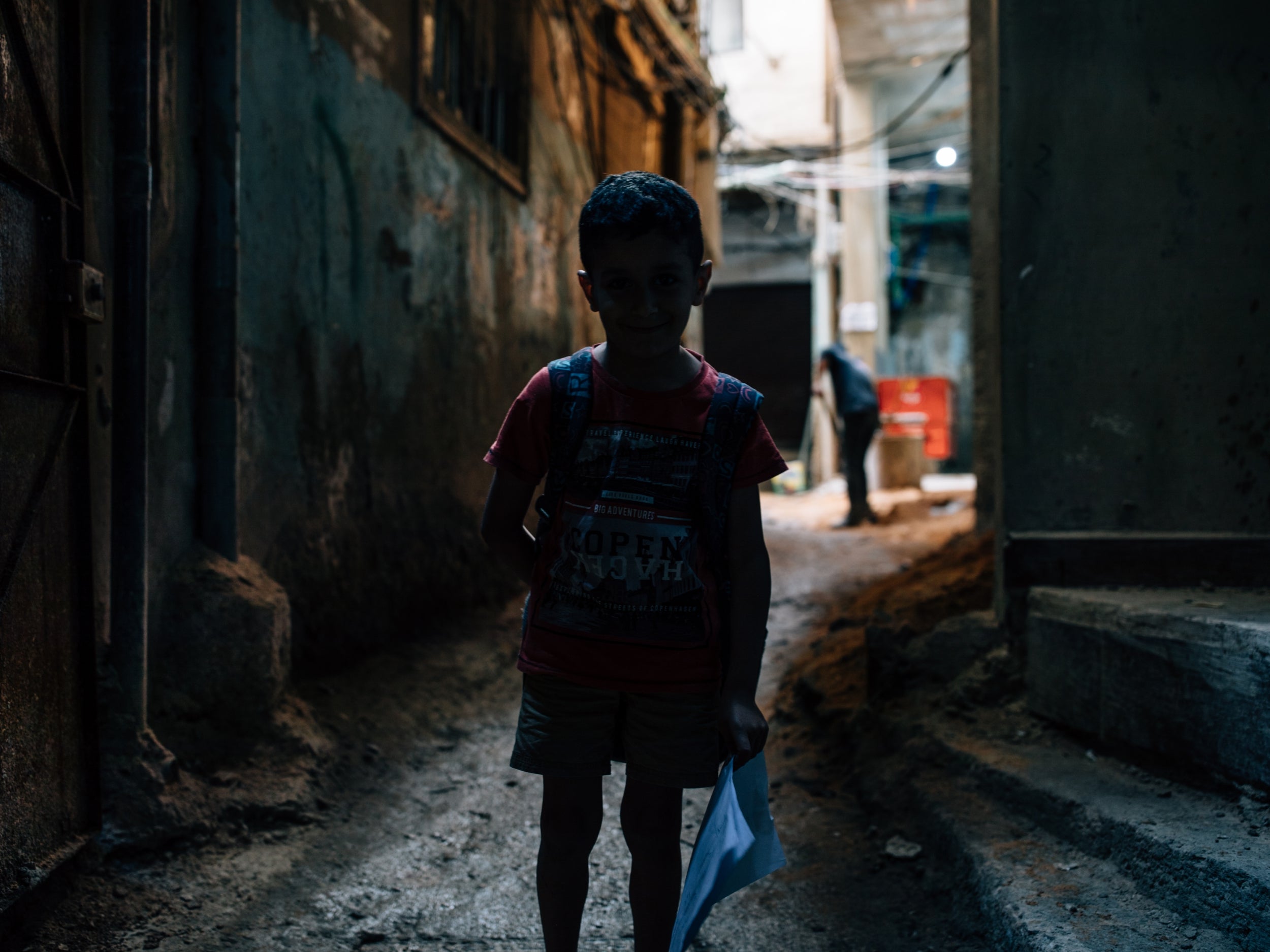Inside Lebanon’s most dangerous camps: Palestinian refugees who are incarcerated and abandoned
Photojournalist Paddy Dowling travelled to Ain al-Hilweh and Bourj al-Barajneh camps in Lebanon to discover how the world has turned its back on the Palestinian refugees and left them without any hope
“The world has washed its hands of us. It has left us here to rot. Why?” Silence swallowed the damp living room. Maryam Mahmud, under the cool glow of fluorescent strip lights, cleared her throat and shared her story.
Seventy-one years ago the Palestinian refugee arrived as a baby at the Bourj al-Barajneh camp in Lebanon. She described this lifetime spent incarcerated in a slum as humiliating.
Since the Arab-Israeli conflict in 1948 – which resulted in many Palestinians being evicted from their land – UN agencies have registered 470,000 refugees in 12 camps across Lebanon.
The original refugee camp at Bourj al-Barajneh was once a sea of canvas tents. Today it is a concrete labyrinth hiding Lebanon’s social outcasts, more than 20,000 Palestinian refugees, from view.
Suspended the length and breadth of its alleyways there is a web spun from electricity cables and water pipes. The result is deadly. Some 54 fatalities through electrocution have been recorded, many of which were children.
Since US president Donald Trump’s withdrawal of $350m (£275m) in essential funding to the Palestinian people, the UN’s Palestinian refugee agency (UNRWA) has seen a period of extreme pressure. This dramatic financial shortfall has had devastating impacts for over five million people who rely on the agency’s healthcare, social services and education.
Assistance to the crisis from Educate A Child, a global programme of the Education Above All Foundation and UNRWA has successfully completed projects enrolling more than 66,900 Palestinian refugee children in the region, providing a quality primary education to those who were out of school.
Despite these efforts, there is a poor learning environment, lack of sanitation, limited access to food and swelling class sizes that have increased dropout rates in schools to 18 percent.

Intense clashes in crowded alleyways between Islamic faction groups in camps like Ain al-Hilweh, located 35km south of Beirut, force UNRWA to close schools at least 20 days a year, further impacting the effort to provide a quality education to Palestinians.
Pauline McNeill Scottish MP, who visited residents at Bourj al-Barajneh camp earlier this year, explained to The Independent: “More politicians need to be informed of the refugee problem out there. We are at a crossroads and we have to find a sensible solution that works. I am afraid Israel needs to be challenged”.
The eagerly anticipated US "deal of the century", a peace agreement due to be unveiled in a matter of weeks led by Jared Kushner, Donald Trump’s son-in-law, will fail to provide any such challenge. Kushner’s remarks demanding Palestinians prove they are “investable", while adding they are not yet capable of governing themselves, further suggests an inevitable non-consensual single state solution. As the world watches and does little to intervene, the future of the entire race of the Palestinian people hangs as precariously as ever.
Join our commenting forum
Join thought-provoking conversations, follow other Independent readers and see their replies
Comments
Bookmark popover
Removed from bookmarks